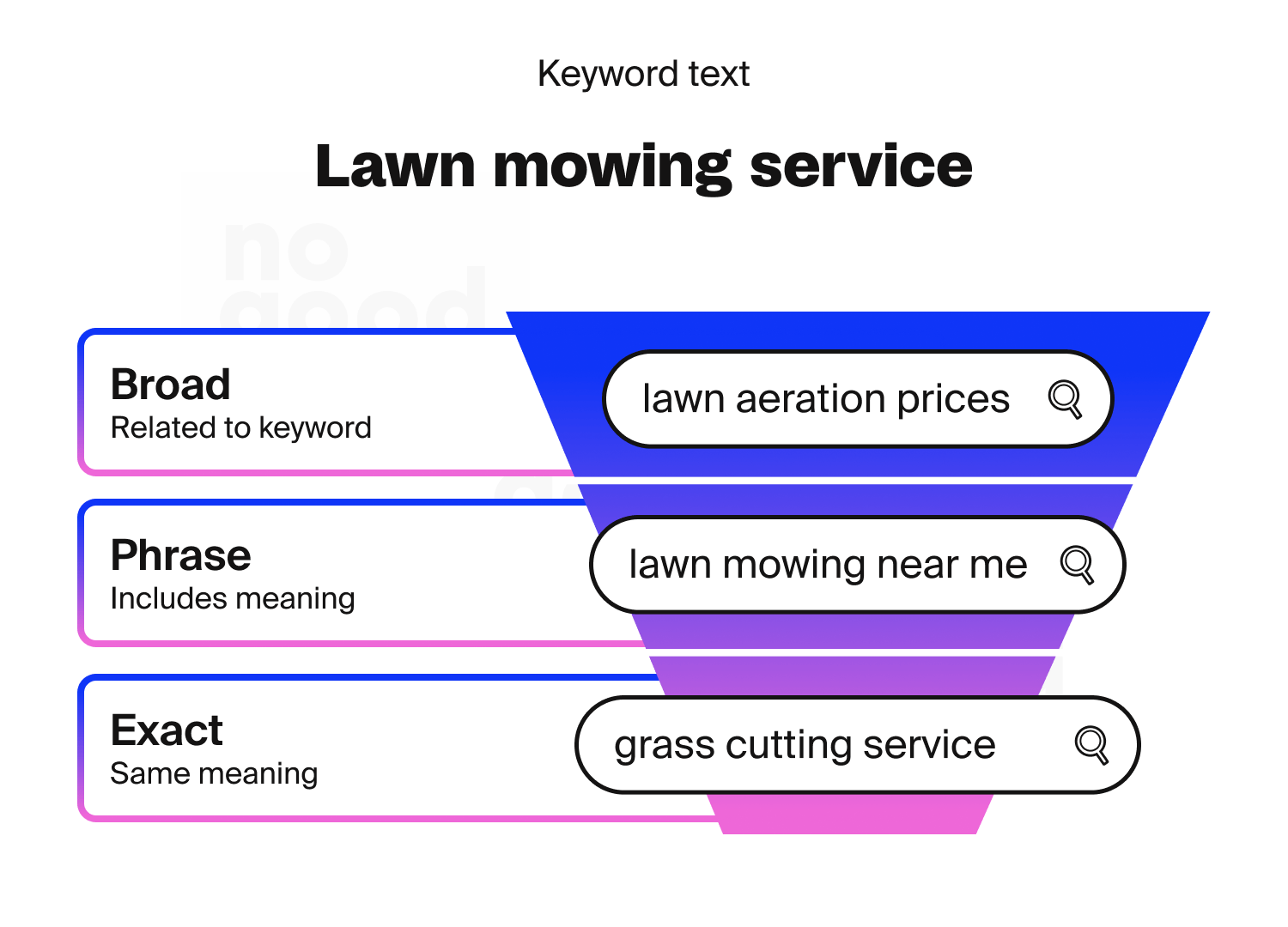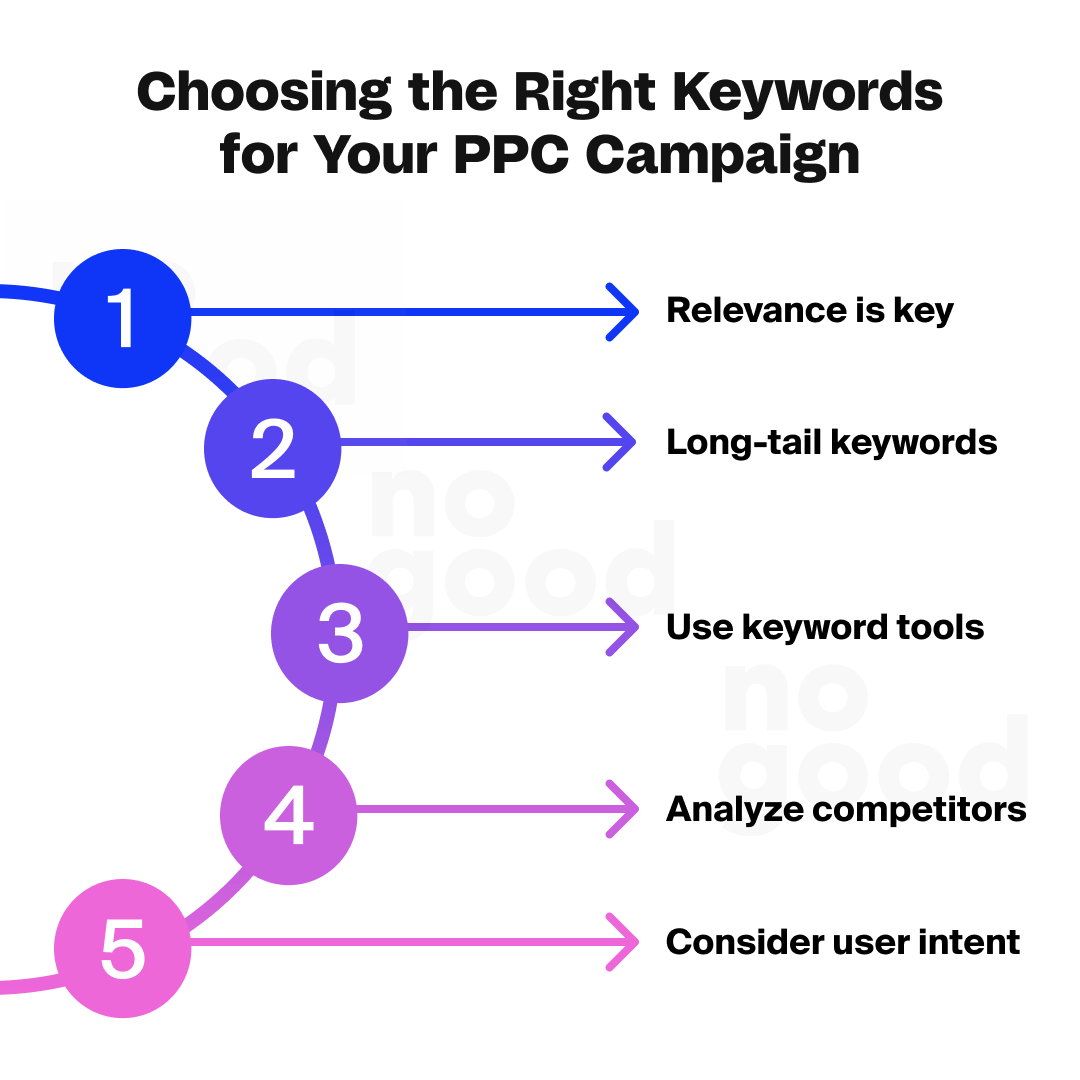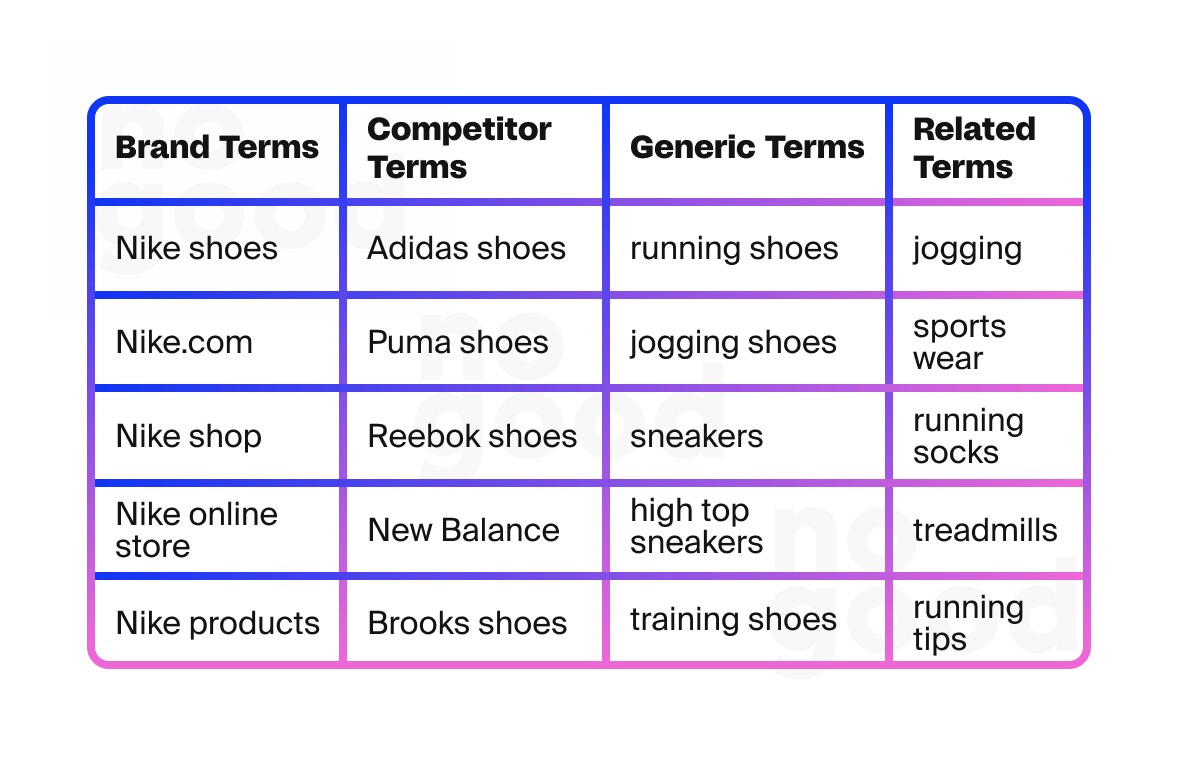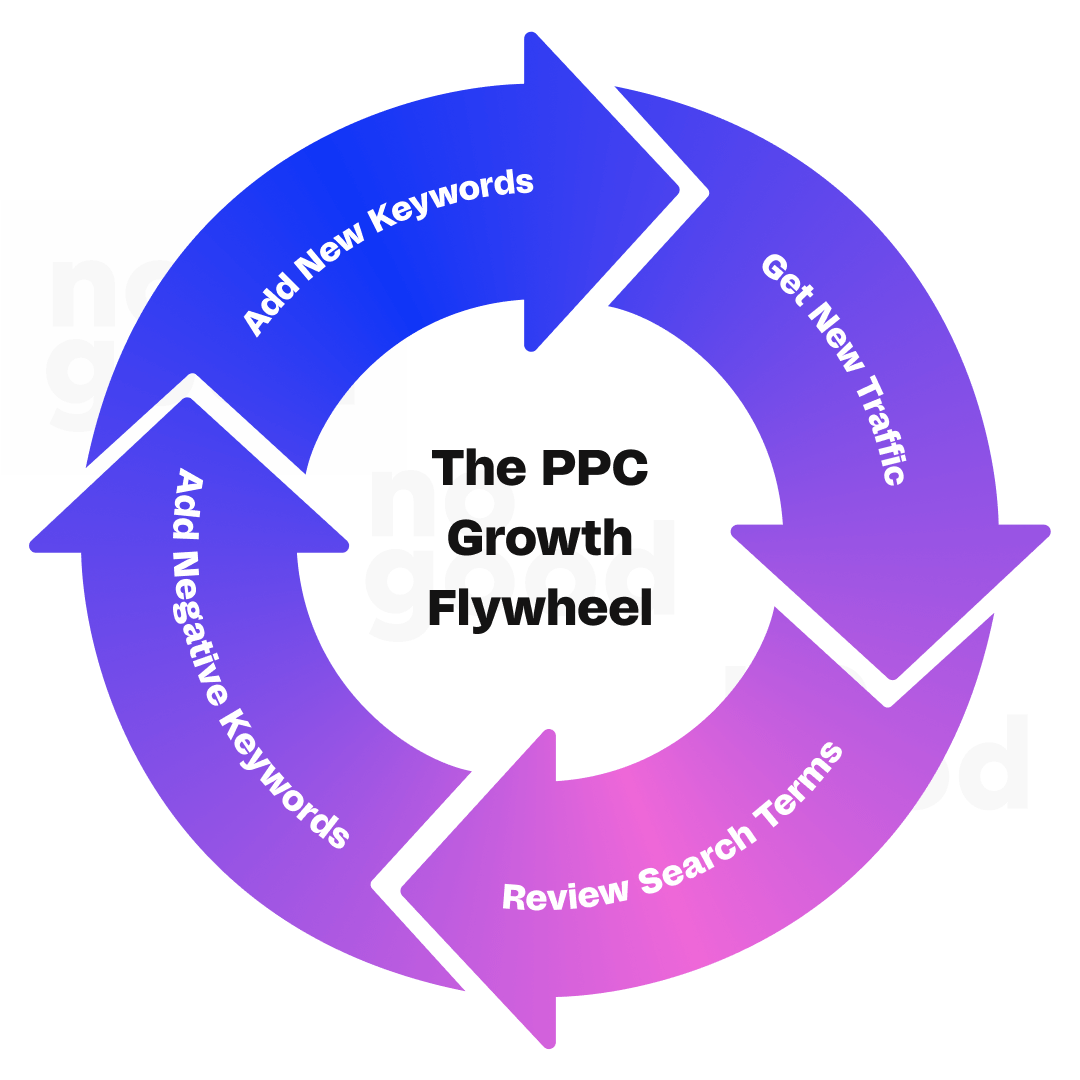Are you looking to improve your PPC (Pay-Per-Click) campaigns and drive more qualified traffic to your website? It all starts at the very beginning of building a PPC strategy. One of the most crucial aspects of a successful PPC campaign is keyword research — and getting this foundational element of your campaigns right can make or break your strategy. By selecting the right keywords, you can ensure that your ads are shown to the right audience, maximize your ad spend, and ultimately increase your ROI.
In this comprehensive guide, we will walk you through the process of PPC keyword research step by step, covering as much ground as possible from understanding the basics to advanced strategies for optimizing your campaigns.
Here’s what we’ll cover:
- What is the role of keyword research in PPC?
- Best keyword tools for PPC
- How to find the right PPC keywords for your campaigns
- What is the difference between PPC and SEO keywords?
- Final thoughts
What Is the Role of Keyword Research in PPC?
With PPC marketing strategies, advertisers pay a fee each time one of their ads is clicked. It’s a way of buying visits to your site rather than attempting to earn those visits organically.
Successful keyword research includes the keywords and phrases that potential customers are likely to use when searching for products or services like yours. By targeting these keywords in your PPC campaigns, you can ensure that your ads are displayed to the right audience at the right time.
Now, let’s dive into the steps involved in conducting effective PPC keyword research.
1. Understand Your Target Audience
Before you start researching keywords, it’s essential to have a clear understanding of your target audience. Who are they? What are their interests, needs, and pain points? Understanding your audience will help you choose keywords that resonate with them and drive relevant traffic to your website.
2. Brainstorm a List of Keywords
Start by brainstorming a list of keywords and phrases that are relevant to your products or services. Think about the terms your potential customers might use when searching for what you offer. Don’t worry about filtering out irrelevant keywords at this stage—just focus on creating a comprehensive list.
3. Use Keyword Research Tools
Once you have a list of potential keywords, it’s time to use keyword research tools to expand and refine your list. Tools like Google Ads Keyword Planner, SEMrush, and Ahrefs can provide valuable insights into search volume, competition, and potential keyword ideas.
4. Identify Long-Tail Keywords
Long-tail keywords are longer, more specific phrases that typically have lower search volume but higher conversion rates. These keywords are often less competitive and can help you target a more specific audience. Identify relevant long-tail keywords to include in your campaigns.
5. Analyze Search Queries and Search Trends
Take a look at search queries and search trends to understand how people are searching for your products or services. This information can help you identify new keyword opportunities and optimize your campaigns for better performance.
6. Conduct Competitor Analysis
Researching your competitors can provide valuable insights into the keywords they are targeting and the strategies they are using in their PPC campaigns. One effective way to do this is to analyze their ad headlines and copy to identify the keywords they are emphasizing.
Make a list of competitor keywords and analyze their performance and relevance to your target audience. Incorporate relevant keywords into your own campaigns to ensure that you are reaching potential customers who may be searching for products or services like yours. By staying informed about your competitors’ keyword strategies, you can stay one step ahead and maintain a competitive edge in the digital marketplace.
7. Consider Keyword Match Types
In PPC advertising, keyword match types determine how closely a search query must match your keyword for your ad to appear. Understanding the different match types—broad match, phrase match, and exact match—can help you control the relevance of your ads and reach the right audience.

8. Refine Your Keyword List
Once you’ve gathered data from keyword research tools and analyzed search queries, it’s time to refine your keyword list. Remove irrelevant keywords, prioritize high-intent keywords, and organize your keywords into relevant groups or themes.
9. Monitor and Adjust Your PPC Campaigns
Keyword research is an ongoing process, and it’s essential to monitor the performance of your PPC campaigns regularly. Keep an eye on metrics like click-through rate (CTR), conversion rate, and ROI, and adjust your keyword strategy accordingly to optimize your campaigns for success.

Best Keyword Tools for PPC
The best keyword tool for PPC ultimately depends on your specific needs, budget, and preferences. However, there are several widely used and highly effective keyword research tools that are popular among digital marketers:
- Google Ads Keyword Planner:
- Features: Google Ads Keyword Planner provides keyword suggestions, search volume data, and historical statistics to help you identify relevant keywords for your PPC campaigns.
- Tips and Tricks:
- Use the “Discover new keywords” feature to explore keyword ideas based on your products, services, or website content.
- Analyze keyword trends and seasonality to identify opportunities for campaign optimization.
- Utilize the “Competitive metrics” feature to assess keyword competition and prioritize high-potential keywords.
- SEMrush:
- Features: SEMrush offers a comprehensive suite of SEO and PPC tools, including keyword research, competitive analysis, and site auditing capabilities.
- Tips and Tricks:
- Use the “Keyword Magic Tool” to generate keyword ideas, analyze keyword difficulty, and discover long-tail variations.
- Conduct competitor analysis to identify competitor keywords, ad copy, and ad spend data.
- Leverage the “Keyword Gap” tool to compare your keyword strategy with competitors and uncover new keyword opportunities.
- Ahrefs:
- Features: Ahrefs provides extensive keyword research capabilities, including keyword analysis, search volume data, and keyword difficulty scores.
- Tips and Tricks:
- Use the “Keywords Explorer” tool to research keywords, analyze search volume trends, and assess keyword difficulty.
- Explore the “Content Gap” feature to identify keyword opportunities based on competitor content gaps.
- Utilize the “Keyword Difficulty” metric to prioritize keywords with the highest potential for ranking.
- SpyFu:
- Features: SpyFu specializes in competitor analysis and offers insights into competitor keywords, ad copy, and ad spend data.
- Tips and Tricks:
- Use the “Competitor Keyword Research” feature to uncover competitor keywords and assess their performance metrics.
- Analyze competitor ad history to identify top-performing ads, keywords, and landing pages.
- Leverage the “Keyword Grouping” tool to organize keywords into relevant groups for better campaign targeting.
- KeywordTool.io:
- Features: KeywordTool.io provides keyword suggestions from various search engines, including Google, YouTube, Bing, and more.
- Tips and Tricks:
- Explore keyword suggestions from different search engines to capture a broader range of keyword variations.
- Use filters to refine keyword results based on search volume, CPC, and keyword difficulty.
- Analyze keyword trends and seasonality to optimize your campaign timing and targeting.
By leveraging these tools and implementing advanced keyword research strategies, you can uncover valuable insights, identify high-potential keywords, and optimize your PPC campaigns for maximum effectiveness and ROI.
How to Find the Right PPC Keywords for Your Campaigns

Understand Your Goals: Before selecting keywords, clarify your campaign objectives. Are you aiming to increase brand awareness, drive website traffic, or generate leads/sales? Understanding your goals will guide your keyword selection process.
Know Your Audience: Research your target audience to understand their demographics, interests, and pain points. Identify the language and terms they use when searching for products or services like yours.
Brainstorm Keywords: Start by brainstorming a list of relevant keywords and phrases based on your products, services, and target audience. Include variations, synonyms, and long-tail keywords to capture different search intents.
Use Keyword Research Tools: Utilize keyword research tools like Google Ads Keyword Planner, SEMrush, or Ahrefs to expand and refine your keyword list. Look for keywords with decent search volume, manageable competition, and relevance to your business.
Consider Keyword Intent: Consider the intent behind each keyword. Are users looking for information, comparison, or ready to make a purchase? Choose keywords that align with the intent of your campaign and match the buyer’s journey.
Analyze Competition: Analyze competitor keywords to identify opportunities and gaps in your keyword strategy. Look for keywords that competitors are targeting successfully and consider incorporating them into your campaigns.
Assess Competitor Keywords: Briefly mention what competitors are targeting by analyzing their ad headlines or using features in keyword research tools that show competitor targeting. Identify opportunities and gaps in your keyword strategy based on competitor insights.
Assess Search Volume and Competition: Evaluate the search volume and competition level of each keyword using keyword research tools. Strike a balance between high search volume keywords (more traffic) and low competition keywords (less competition).
Refine Keyword List: Refine your keyword list by removing irrelevant or low-performing keywords. Prioritize high-intent keywords with the potential to drive conversions and optimize your budget allocation accordingly.
Organize Keywords: Organize your keywords into relevant groups or themes based on product/service categories, campaign objectives, or search intent. This will help you create targeted ad groups and ad copy for better relevance and performance.
Monitor and Adjust: Continuously monitor the performance of your PPC campaigns and keywords. Track metrics like click-through rate (CTR), conversion rate, and ROI. Make data-driven adjustments to your keyword strategy based on campaign performance and market changes.
By following these steps and considering factors like audience intent, competition, and performance metrics, you can choose PPC keywords that effectively target your audience, drive traffic, and achieve your campaign objectives.

What Is the Difference Between PPC and SEO Keywords?
PPC (Pay-Per-Click) and SEO (Search Engine Optimization) keywords serve different purposes and are used in distinct marketing strategies. Understanding the differences between the two can help you optimize your digital marketing efforts effectively.
1. Purpose
PPC Keywords: PPC campaigns are designed to drive immediate traffic, leads, or sales through paid advertising. Advertisers bid on keywords relevant to their products or services and create ads to appear on search engine results pages (SERPs) or on other platforms.
SEO Keywords: SEO efforts focus on improving a website’s organic visibility and ranking in search engine results for specific keywords. The goal is to attract organic (non-paid) traffic over the long term by optimizing website content, structure, and relevance to target keywords.
2. Cost
PPC Keywords: PPC advertising involves direct costs for each click on an ad. Advertisers set a budget and bid amount for keywords, and they are charged each time their ad is clicked. Costs vary based on factors such as keyword competition, bid amount, ad quality, and budget allocation.
SEO Keywords: SEO does not involve direct costs for clicks or impressions. While there may be expenses associated with SEO efforts, such as hiring an SEO consultant or investing in SEO tools, the primary focus is on optimizing website content and improving organic visibility in search results without paying for clicks.
3. Visibility and Positioning
PPC Keywords: PPC ads are prominently displayed above or below organic search results on SERPs or on other advertising platforms. Advertisers have control over their ad positioning through bid management, ad relevance, and targeting options.
SEO Keywords: Organic search results appear below PPC ads on SERPs. SEO efforts aim to improve a website’s ranking in organic search results for specific keywords over time. Higher rankings lead to increased visibility and traffic without direct advertising costs.
4. Timing and Flexibility
PPC Keywords: PPC campaigns provide immediate visibility and traffic once ads are launched and campaigns are activated. Advertisers have flexibility in adjusting bids, targeting options, ad copy, and landing pages to optimize campaign performance in real-time.
SEO Keywords: SEO efforts require time and patience to see results, as improvements in organic rankings may take weeks or months to materialize. SEO strategies involve on-page optimization, content creation, link building, and technical enhancements to improve a website’s long-term visibility and authority.
5. Competition and Longevity
PPC Keywords: PPC keywords face direct competition from other advertisers bidding on the same keywords. Ad positions and costs can fluctuate based on bidding activity and market demand. The visibility of PPC ads ceases once the advertising budget is exhausted.
SEO Keywords: SEO keywords also face competition from other websites vying for top organic rankings. However, organic search results are influenced by various factors beyond bidding, such as website authority, relevance, and content quality. Once established, high-ranking organic listings can provide sustained traffic and visibility over time.
6. Targeting Intent
PPC Keywords: PPC campaigns often target keywords with high commercial intent, where users are actively searching to make a purchase or take a specific action. Advertisers bid on keywords related to product names, features, or specific search queries indicating purchase intent.
SEO Keywords: SEO efforts may target a broader range of keywords, including informational, navigational, and transactional queries. In addition to targeting keywords with commercial intent, SEO also focuses on providing valuable content to address user needs and establish authority in the industry.
7. Ad Copy and Landing Pages
PPC Keywords: PPC ads require compelling ad copy and relevant landing pages to drive conversions. Advertisers must create persuasive ad messaging that aligns with the user’s search query and leads them to a landing page optimized for conversion.
SEO Keywords: SEO efforts involve optimizing website content, meta tags, and internal linking structure to improve organic rankings. While ad copy is not a factor in SEO, optimizing landing pages for user experience, relevance, and engagement is essential for attracting and retaining organic traffic.
8. Keyword Competition
PPC Keywords: PPC keywords face direct competition from other advertisers bidding on the same keywords. Advertisers with higher bids, better ad quality, and more relevant landing pages may achieve higher ad positions and visibility.
SEO Keywords: SEO keywords also face competition from other websites vying for top organic rankings. However, organic search results are influenced by factors beyond bidding, such as website authority, relevance, content quality, and backlink profile.
9. Short-Term vs. Long-Term Results
PPC Keywords: PPC campaigns can generate immediate results and traffic once ads are launched and campaigns are activated. However, the visibility of PPC ads ceases once the advertising budget is exhausted, resulting in short-term traffic spikes.
SEO Keywords: SEO efforts require time and patience to see results, as improvements in organic rankings may take weeks or months to materialize. However, once established, high-ranking organic listings can provide sustained traffic and visibility over the long term without ongoing advertising costs.
Final Thoughts
Expanding on the differences between PPC and SEO keywords provides a comprehensive understanding of their respective roles and strategies within digital marketing. While PPC focuses on immediate visibility, commercial intent, and ad-driven conversions, SEO emphasizes long-term organic visibility, content relevance, and user engagement.
By leveraging the strengths of both PPC and SEO, businesses can develop holistic digital marketing strategies that maximize both paid and organic opportunities for success.






